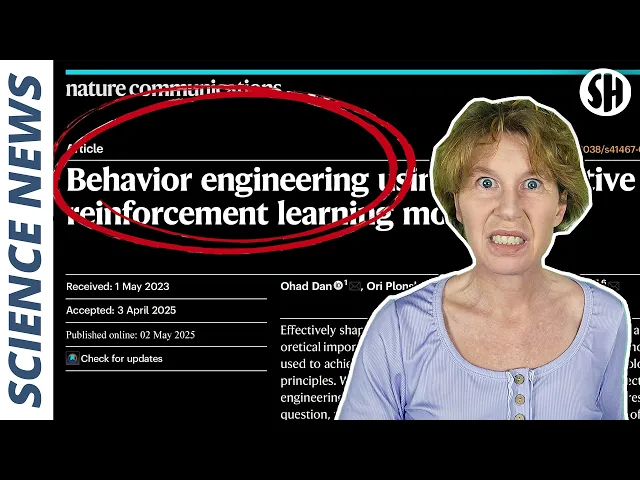AI’s Real Threat: Mass Manipulation

AI's real threat isn't what you think
The conversation about artificial intelligence often veers toward sensationalist scenarios: superintelligent machines overthrowing humanity or robots replacing our jobs wholesale. But what if we're looking in the wrong direction entirely? A recent analysis featuring Yuval Noah Harari, Max Tegmark, and other thought leaders suggests the most immediate danger isn't AI becoming conscious or malevolent – it's how these systems might amplify human manipulation to unprecedented scales.
Why manipulation through AI matters now
The experts gathered for this discussion don't seem particularly concerned about the apocalyptic "AI takes over" scenarios that dominate science fiction. Instead, they're focused on more subtle yet potentially more devastating impacts that are already beginning to emerge:
-
AI systems are becoming extraordinarily effective at understanding human psychology and exploiting our cognitive vulnerabilities – not because they're conscious, but because they're built to optimize for engagement and persuasion
-
The unprecedented scale of AI deployment means these systems can individually target billions of people simultaneously, creating personalized manipulation techniques far beyond what human propagandists could achieve
-
Unlike previous technologies, AI systems are active agents that can continuously adapt their approaches based on what successfully influences each specific person, creating feedback loops of increasing effectiveness
The democracy problem we're not discussing enough
The most compelling insight from this analysis isn't about technology itself but about social systems. As Yuval Noah Harari points out, democratic societies function on the assumption that humans can make meaningful choices based on their own judgment and values. But what happens when AI systems become so effective at manipulation that human choice becomes largely illusory?
This matters immensely because we're witnessing the collision of two powerful forces: increasingly sophisticated persuasion technologies and increasingly vulnerable information ecosystems. The coming decade will likely determine whether our social institutions can adapt fast enough to preserve meaningful human agency in decision-making, or whether we slide into what one speaker described as "a new kind of digital dictatorship."
Looking beyond the standard concerns
While the video touches on manipulation broadly, there are several dimensions worth exploring further. First, consider how these dynamics are already playing out in the commercial sector. Consumer-facing companies are rapidly integrating AI systems that optimize for conversion and retention, not consumer welfare. A recent study from Stanford found that personalized AI-driven recommendations can increase consumer spending by up
Recent Videos
How To Earn MONEY With Images (No Bullsh*t)
Smart earnings from your image collection In today's digital economy, passive income streams have become increasingly accessible to creators with various skill sets. A recent YouTube video cuts through the hype to explore legitimate ways photographers, designers, and even casual smartphone users can monetize their image collections. The strategies outlined don't rely on unrealistic promises or complicated schemes—instead, they focus on established marketplaces with proven revenue potential for image creators. Key Points Stock photography platforms like Shutterstock, Adobe Stock, and Getty Images remain viable income sources when you understand their specific requirements and optimize your submissions accordingly. Specialized marketplaces focusing...
Oct 3, 2025New SHAPE SHIFTING AI Robot Is Freaking People Out
Liquid robots will change everything In the quiet labs of Carnegie Mellon University, scientists have created something that feels plucked from science fiction—a magnetic slime robot that can transform between liquid and solid states, slipping through tight spaces before reassembling on the other side. This technology, showcased in a recent YouTube video, represents a significant leap beyond traditional robotics into a realm where machines mimic not just animal movements, but their fundamental physical properties. While the internet might be buzzing with dystopian concerns about "shape-shifting terminators," the reality offers far more promising applications that could revolutionize medicine, rescue operations, and...
Oct 3, 2025How To Do Homeless AI Tiktok Trend (Tiktok Homeless AI Tutorial)
AI homeless trend raises ethical concerns In an era where social media trends evolve faster than we can comprehend them, TikTok's "homeless AI" trend has sparked both creative engagement and serious ethical questions. The trend, which involves using AI to transform ordinary photos into images depicting homelessness, has rapidly gained traction across the platform, with creators eagerly jumping on board to showcase their digital transformations. While the technical process is relatively straightforward, the implications of digitally "becoming homeless" for entertainment deserve careful consideration. The video tutorial provides a step-by-step guide on creating these AI-generated images, explaining how users can transform...
